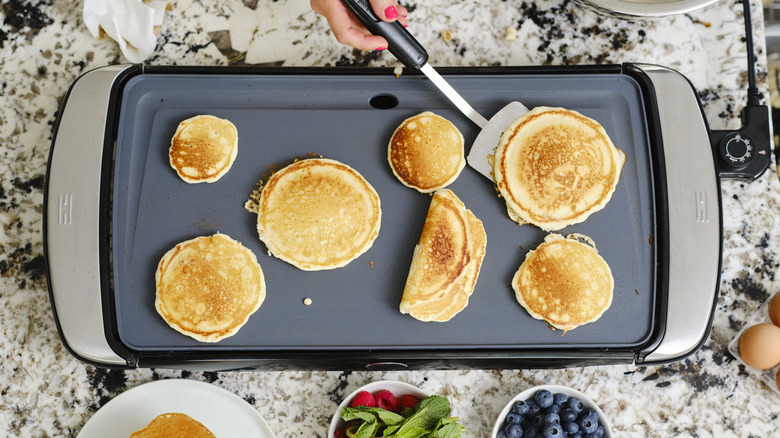How To Clean An Electric Griddle For The Best Breakfast Every Time
Picture this: it's a slow, peaceful Sunday morning. The aroma of sizzling bacon, golden pancakes, and a spread of delicious griddled fare fills the air. The anticipation of a soul-soothing breakfast is almost palpable. There is, however, one crucial element that is often overlooked: Cleaning your electric griddle before covering its hot surface in eggs, meats, and batter. Neglecting this essential step can turn an appetizing meal into a culinary nightmare.
Maintaining a spotless electric griddle is not just about aesthetics; it's a matter of food safety and performance. Grease, charred bits, and residue from previous meals can not only alter the flavor of your current dish but also become a breeding ground for harmful bacteria, which, if ingested, can lead to food poisoning and other serious illness. Certain foods like sticky syrups and melty cheeses tend to leave behind particularly stubborn residue. These finicky leftovers can be challenging to remove, but fear not — there's a foolproof method to conquer even the toughest grime. First and foremost, make sure the iron plate is unplugged and has cooled down completely to avoid burns and injuries. Then, gather what you'll need, including tools and cleaning agents that are specifically designed for non-stick surfaces.
Safety is key when it comes to cleaning your griddle
Just like scouring your oven, the electric griddle cleaning process should be treated as a meticulous affair. Start by scraping off any excess debris using a flat-edged spatula or a grill brush with sturdy bristles. This initial step helps to eliminate loose particles. Next, mix warm water with a couple teaspoons of mild dish soap and soak a soft microfiber cloth or sponge in the solution. Gently scrub the griddle's veneer, paying extra close attention to tricky areas. For hardened deposits, a concoction of baking soda and warm water can work wonders. Apply a generous layer of paste directly to the blotches and let it sit for a few minutes before scrubbing away. To maintain the griddle's non-stick power, it's wise to avoid using abrasive materials such as steel wool or harsh chemicals, as these can damage the delicate, smooth coating. While scratched non-stick surfaces aren't hazardous per se, scratches can still lead to unsightly chips and blemishes in your investment.
Regular cleaning not only ensures a hygienic cooking environment but also lengthens the lifespan of your kitchen appliances. Plus, failing to thoroughly disinfect the tools you use to cook with can compromise the flavor and safety of your meals. Of course, the importance of a clean electric griddle extends well beyond breakfast — it can influence the outcome of all your creations throughout the day, from burgers and quesadillas to veggies and salmon.

